
Over the last few years, plastic pollution has become a major issue that has gained a lot of traction across the world. Plastic floating in the Pacific Ocean; a snorkeller swimming in plastic; turtles, sharks, whales in plastic detritus – images of all these things have been popping up on our social media feeds, reminding us of the tragic cost of our wasteful consumerist society. The damage wrought by plastic pollution on ocean life has raised awareness and motivated action. Various global projects and initiatives are trying to working to reduce our plastic consumption and prevent more plastic from entering the ocean.
However, one aspect of the plastic problem has been quite neglected. Less noticeable due to it being underwater, cave pollution, or in other words the pollution of one of our biggest freshwater supplies: underground water.
The sum of all waters on Earth is called the hydrosphere, “is a dynamic mass of water that is continually on the move, evaporating from the oceans to the atmosphere, precipitating to the land, and running back to the ocean again” (Lutgens, Essentials of Geology, 13th Edition, 2017). Our oceans cover around 71 percent of our Earth’s surface and account for about 97.5 percent of Earth’s water (including saline groundwater and lakes). The hydrosphere also includes the freshwater found underground and in streams, lakes, and glaciers, for a total of 2.5 percent of Earth’s water, divided as follows: 1.72 percent in glaciers, 0.03 percent in streams and lakes, and 0.75 percent in groundwater.
Denne historien er fra Issue 02 - 2020-utgaven av Asian Diver.
Start din 7-dagers gratis prøveperiode på Magzter GOLD for å få tilgang til tusenvis av utvalgte premiumhistorier og 9000+ magasiner og aviser.
Allerede abonnent ? Logg på
Denne historien er fra Issue 02 - 2020-utgaven av Asian Diver.
Start din 7-dagers gratis prøveperiode på Magzter GOLD for å få tilgang til tusenvis av utvalgte premiumhistorier og 9000+ magasiner og aviser.
Allerede abonnent? Logg på
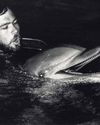
The Sea Specialist: An Interview With Bret Gilliam
Most people learn to crawl before they walk, but there is a man who learned to swim before taking his first steps. Diver, entrepreneur, writer, athlete, maritime specialist – Bret Gilliam is the complete package. Just add water.
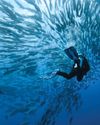
The Best Of Diving In Southeast Asia: Explore The Amazon Of The Seas
Southeast Asia encompasses the world’s most biodiverse reefs and some of the best diving anywhere on the planet. From the tiniest and rarest critters to huge fish schools and the biggest pelagics, the region has it all, and there’s something to suit divers of any level.

Below With David Doubilet & Jennifer Hayes
Best known for their work with National Geographic, David Doubilet and Jennifer Hayes came together to discuss their work with the youth, and, as Jennifer put it, “submerging with the emerging talent”.
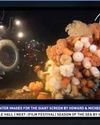
Underwater Images For The Giant Screen
Howard and Michele Hall are best known for their success in underwater IMAX filmmaking.

Journey To Filming For National Geographic Wild Brazil
Cristian is an acclaimed and highly versatile Brazilian wildlife filmmaker who works both underwater and topside.
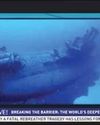
Breaking The Barrier: The World's Deepest Dive
David Strike shared a brilliant presentation about the history of deep diving and how Lt. George Wookey achieved the world’s deepest dive in 1956 using a surface-supplied rebreather.
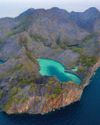
Dive the Golden Land
The Best of Diving In Southeast Asia

OFFICIAL LAUNCH OF BLUE HOPE
Top Session of the Week (14,319 (Views) / 42,831 (Reach)
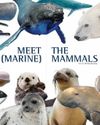
MEET THE (MARINE) MAMMALS
MEET THE (MARINE) MAMMALS

Fashion Faux Pas
What can be done to mitigate the impact of the garment industry on our oceans?